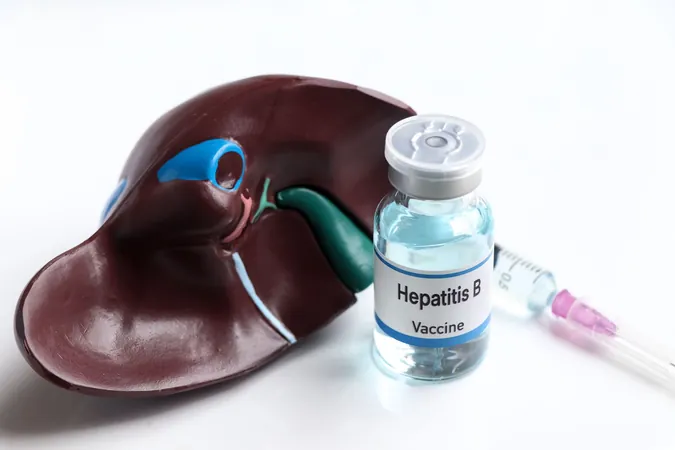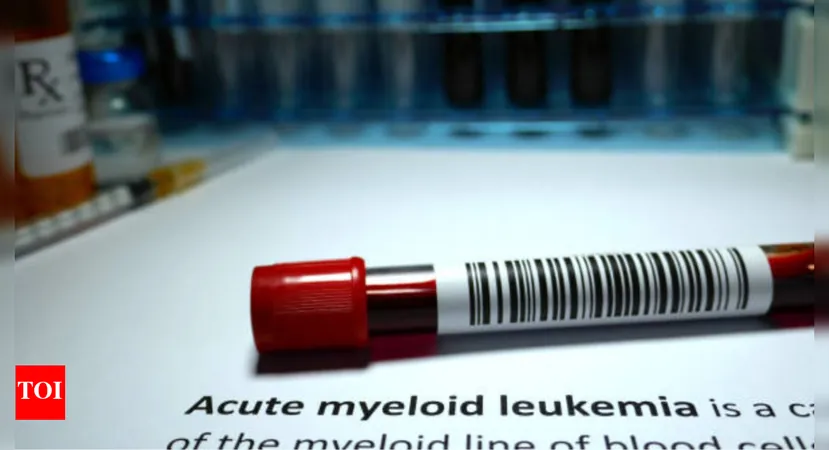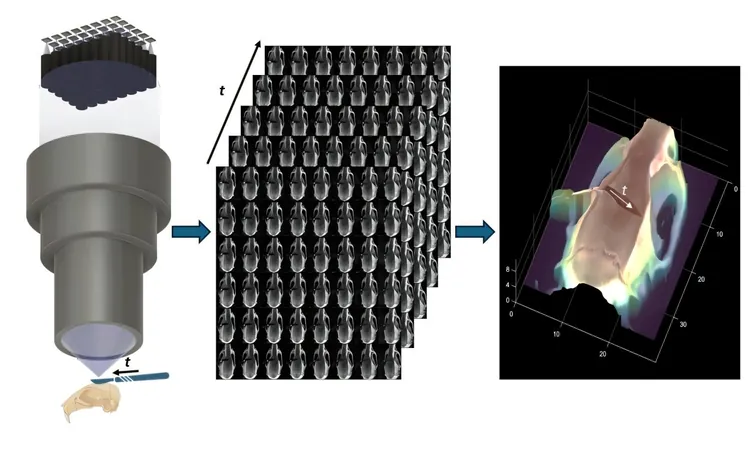
Unmasking Hepatitis Vaccine Myths: What You Need to Know!
2025-05-19
Author: Yu
The Growing Challenge of Vaccine Mistrust
In an era of rampant misinformation, concerns about vaccines—especially hepatitis vaccines—have surged. Pharmacists are now on the front lines, tasked with debunking myths and promoting the benefits of hepatitis A and B vaccines.
The Dangerous Myths That Persist
One of the most persistent misconceptions is the belief that natural immunity is superior to vaccination. This dangerous notion overlooks the risks of actual infections, such as liver failure and even liver cancer linked to hepatitis B. As Dr. Jeff Goad, President of the National Foundation for Infectious Diseases, emphasizes, "Hepatitis B was the first cancer vaccine; it actually prevents cancer!".
Dispelling Vaccine Hesitancy
During our recent conversation, Goad shared alarming trends surrounding the hepatitis vaccines. Many people mistakenly believe they only need the hepatitis A vaccine if they travel, not realizing that outbreaks can occur locally among populations and even through contaminated food sources.
The Stark Reality of Vaccination Rates
Vaccination rates tell a troubling story. For adults, only about 9% are vaccinated against hepatitis A, while a mere 30% to 50% for hepatitis B is concerning, particularly among high-risk groups. In stark contrast, childhood vaccination rates for hepatitis A are around 83%, with hepatitis B exceeding 90%.
The Urgent Need for Education and Access
Widespread misinformation continues to fuel vaccine hesitancy. Misconceptions such as "Hepatitis A is harmless" or "vaccines contain harmful additives" must be addressed directly. Dr. Goad underscores the importance of evidence-based conversations, citing that neither hepatitis A nor B vaccines contain thimerosal, a mercury compound. Instead, the focus should be on normalizing vaccinations, utilizing every pharmacy visit as an opportunity for education.
Empowering Patients with Knowledge
For patients who may be hesitant about prioritizing the hepatitis vaccines, Dr. Goad recommends a clear breakdown of risks versus benefits. With effective vaccines boasting over 95% efficacy that protect against diseases known to cause cancer, encouraging dialogues around ongoing local hepatitis A outbreaks is crucial. As Goad notes, "You might be asymptomatic and still transmit hepatitis B—getting vaccinated is a smart, proactive move!"
Simplifying Access to Vaccines
For those worried about receiving too many injections at once, rest assured—hepatitis A and B vaccines can be given simultaneously or combined into a single shot. Moving toward universal vaccination recommendations, including those for hepatitis B, is a positive development that could protect more individuals.
Join the Fight Against Hepatitis!
With hepatitis outbreaks still making headlines and given the importance of early and widespread vaccination efforts, both pharmacists and patients play pivotal roles in this public health crisis. It’s time to combat the myths and misinformation head-on. Let’s spread the facts that can save lives!



 Brasil (PT)
Brasil (PT)
 Canada (EN)
Canada (EN)
 Chile (ES)
Chile (ES)
 Česko (CS)
Česko (CS)
 대한민국 (KO)
대한민국 (KO)
 España (ES)
España (ES)
 France (FR)
France (FR)
 Hong Kong (EN)
Hong Kong (EN)
 Italia (IT)
Italia (IT)
 日本 (JA)
日本 (JA)
 Magyarország (HU)
Magyarország (HU)
 Norge (NO)
Norge (NO)
 Polska (PL)
Polska (PL)
 Schweiz (DE)
Schweiz (DE)
 Singapore (EN)
Singapore (EN)
 Sverige (SV)
Sverige (SV)
 Suomi (FI)
Suomi (FI)
 Türkiye (TR)
Türkiye (TR)
 الإمارات العربية المتحدة (AR)
الإمارات العربية المتحدة (AR)